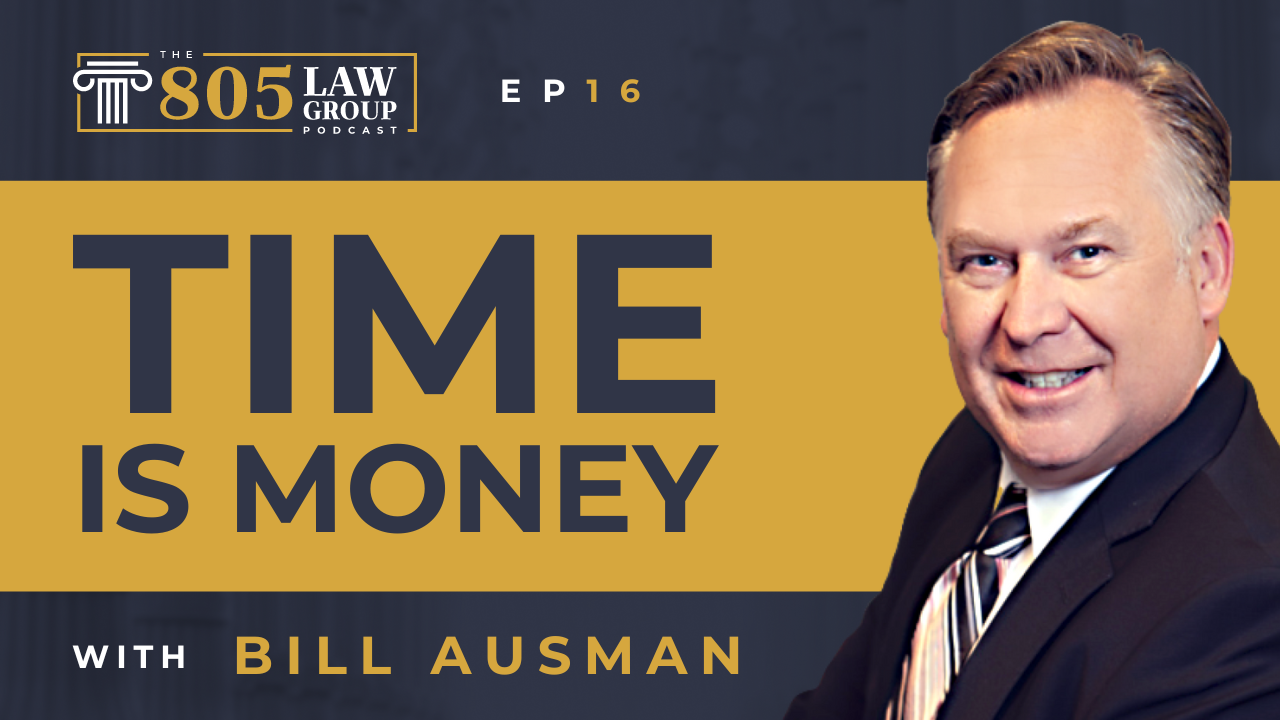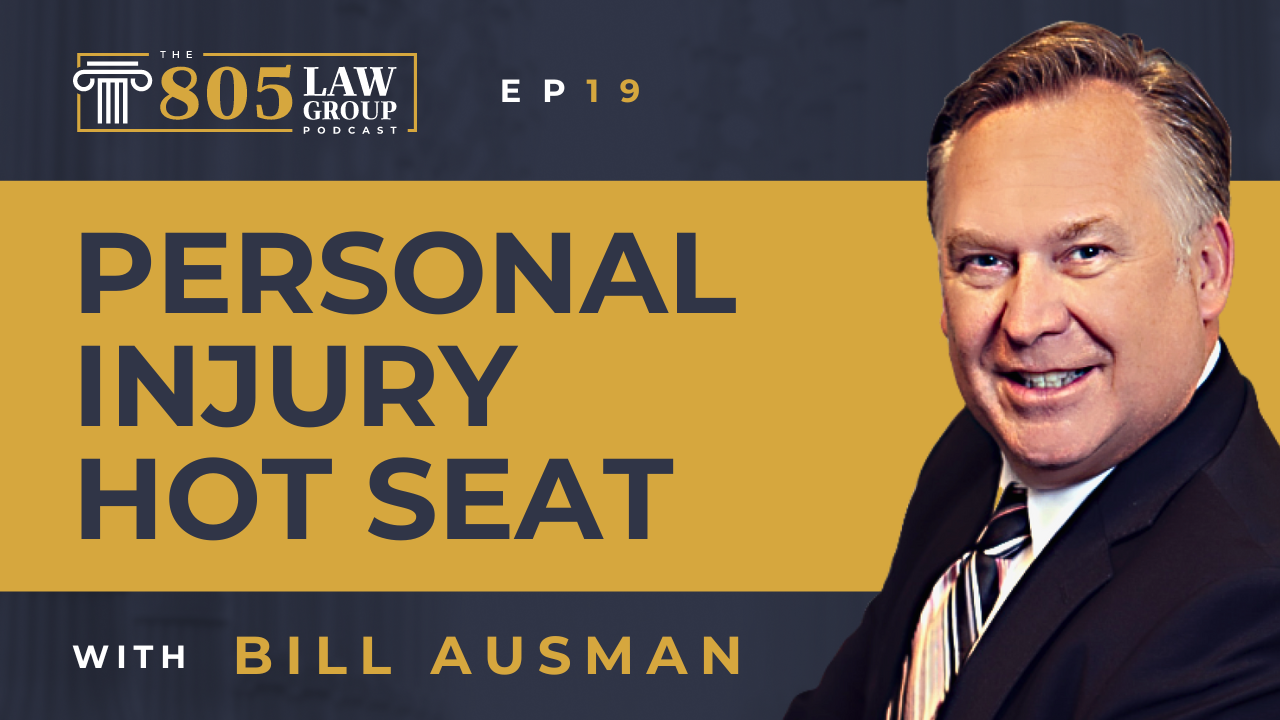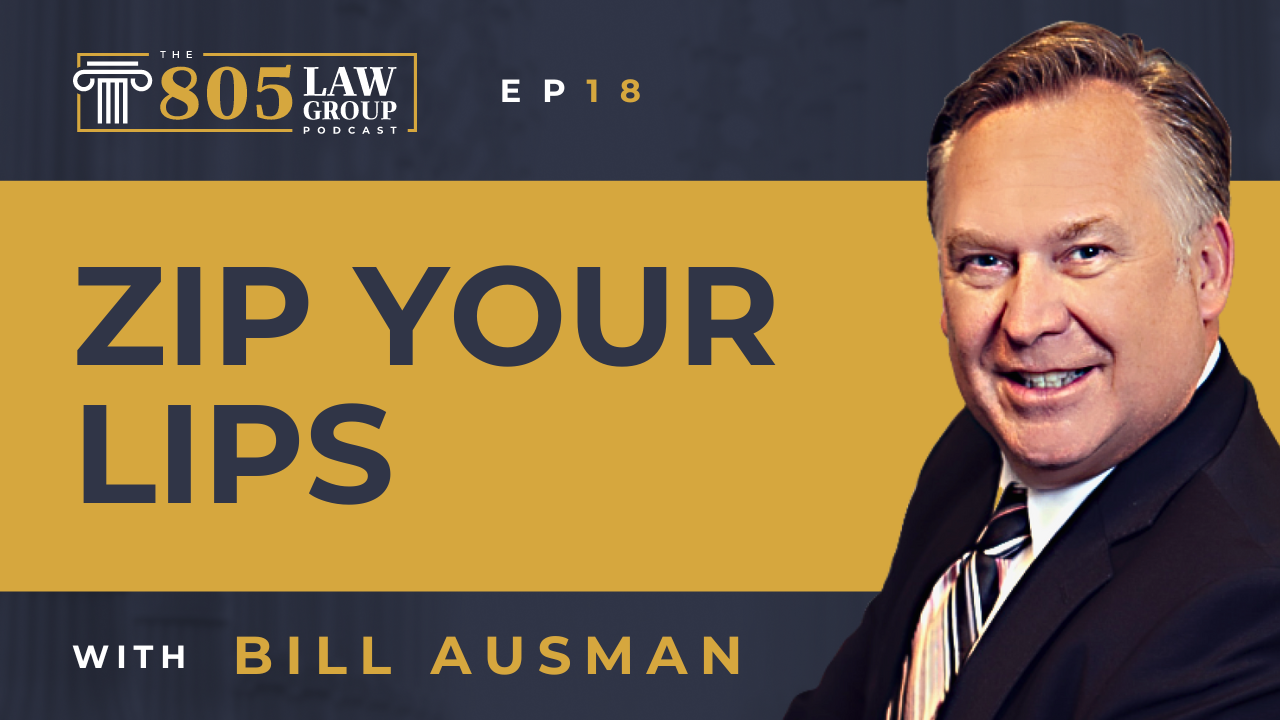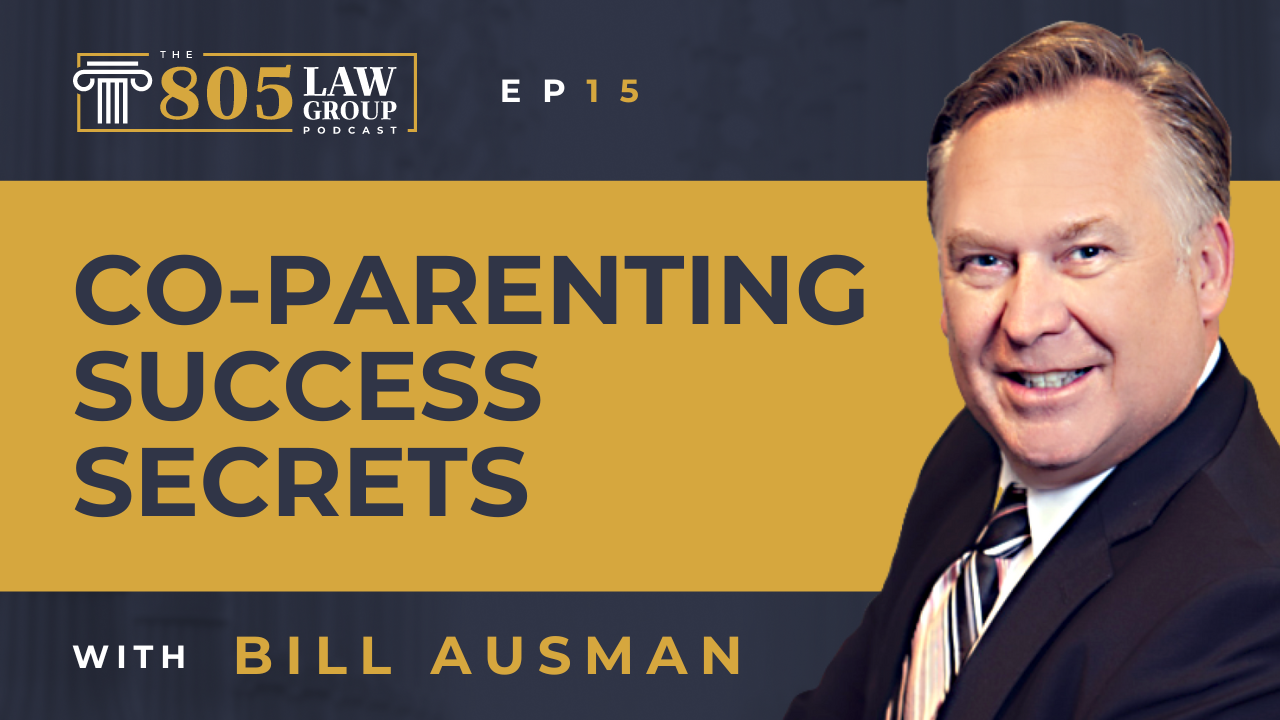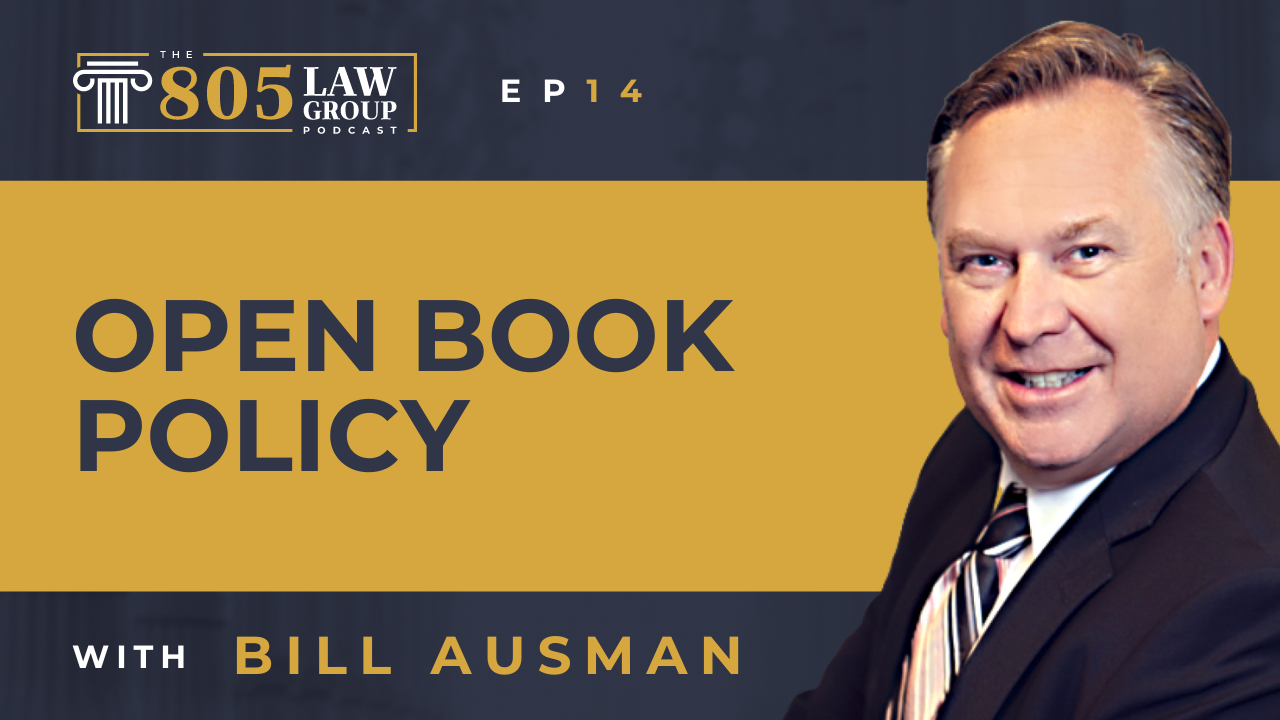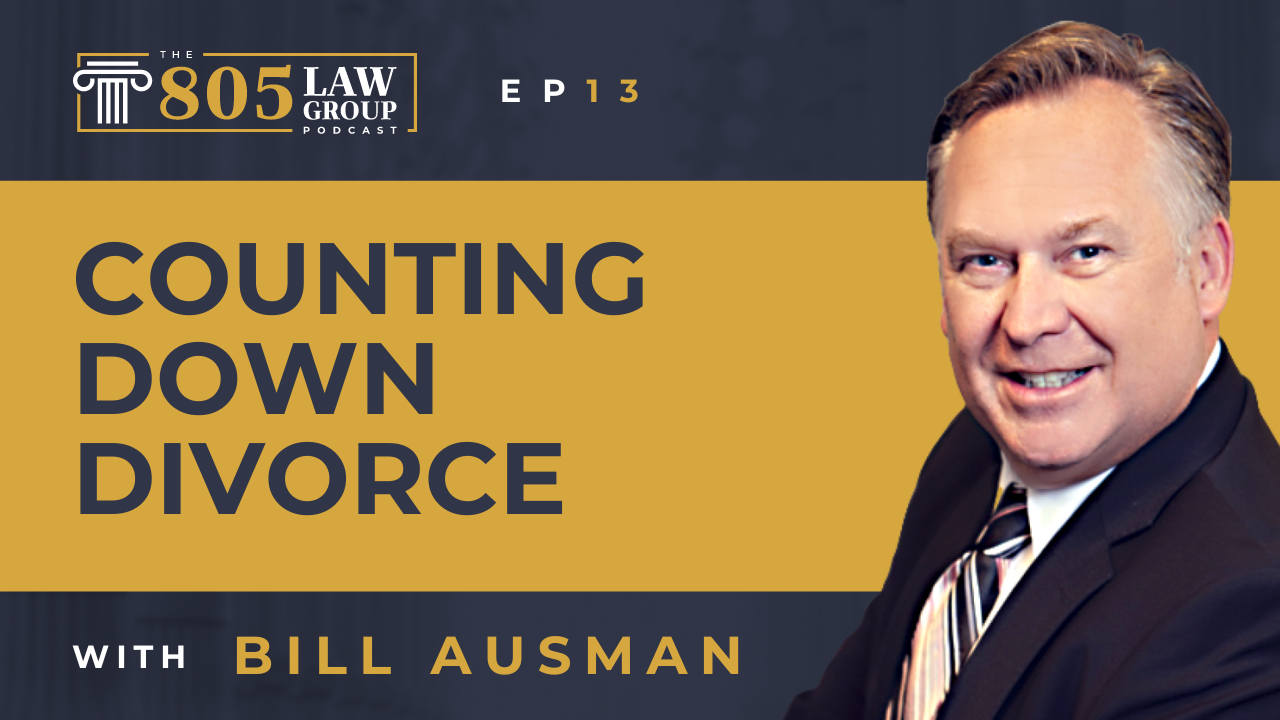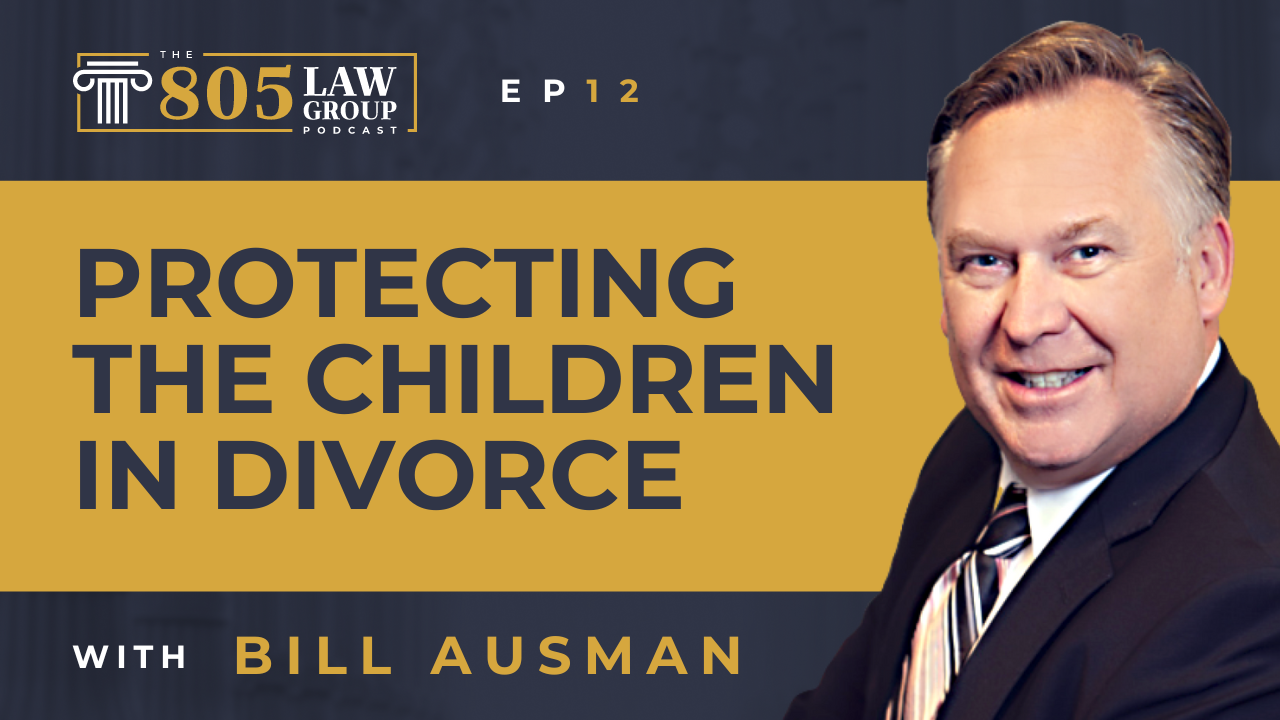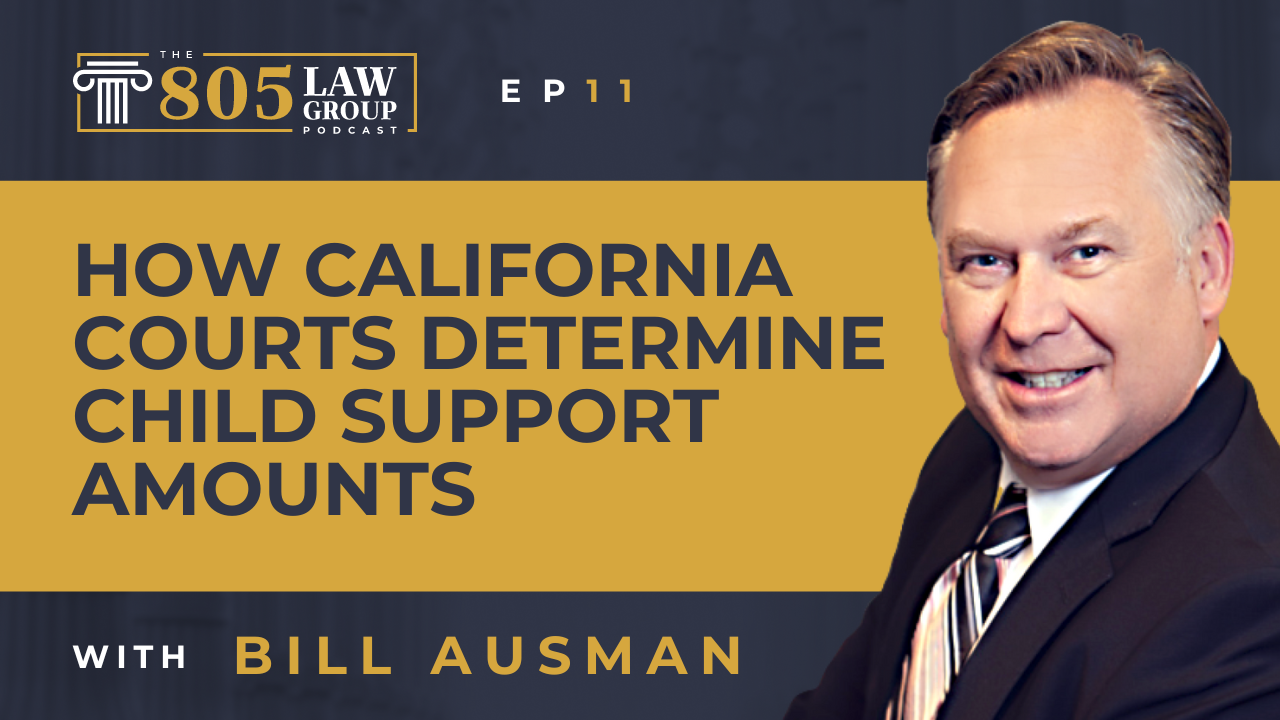[00:00:00] Dean Mignola: Welcome to the 805 Law Group podcast. We’re your hosts. I’m Dean Mignola.
[00:00:04] Bill Ausman: And I’m Attorney Bill Ausman.
[00:00:06] Dean Mignola: Today we’re going to talk about What It Takes To Get Compensation For Lost Wages or Time Away From Work on Your Personal Injury Claim. And I know that’s probably on a lot of people’s minds who have that kind of case. So Bill, how do you assess and calculate, first of all, lost wages in a personal injury claim?
[00:00:26] Bill Ausman: Lost wages can vary, Dean. Certainly the time you take away from work, you should keep track of that if you have a W-2 job, it makes it easier. Your pay stub can track that time that you’ve taken away, whether that’s sick time or usually vacation days, or if you have to separate from your company we can calculate that time.
[00:00:47] It becomes a little more nebulous when someone is self employed, they get a 1099 or they simply have business or businesses that they run themselves. In those situations it’s important to keep records [00:01:00] to show what you’ve earned in the past.
[00:01:02] Show what opportunities you’ve lost if you had to miss a project because of that, save the documentation so we can show the insurance company exactly what you’ve lost.
[00:01:14] Dean Mignola: Okay. In cases where the injury results in long term or permanent disability, how do you approach estimating future loss earnings and what factors are used in that calculation?
[00:01:28] Bill Ausman: Right. So oftentimes we’ll do is we’ll look at the age of the person, we’ll look at whether that injury is going to resolve. If it’s going to resolve, when is that going to resolve? Well, we can either calculate that out or quite often during the process, we’ll check with medical providers to see how that healing process is coming together.
[00:01:50] And if a person is ends up losing their job, they end up not look like they’re going to work. Then quite often what we’ll do is hire an [00:02:00] expert to evaluate that, because as your career progresses, you typically would make more money, you would get increases in salary based on merit, increases in salary just based on cost of living.
[00:02:14] So being able to calculate this is something very important. We’ve worked with several economists as well as vocational assessment professionals to determine what the value of someone’s services is, should they continue to be able to participate in the workforce.
[00:02:31] Dean Mignola: Okay. So what role does expert testimony or vocational rehabilitation, for example, those kinds of assessments play in determining the impact of the injury on the client’s ability to work, earn wages, etc?
[00:02:44] Bill Ausman: Right. Those are important especially the longer someone is out of the workforce, the more we can determine whether, hey, is there a diminution in value of a person’s services? If they’re out of the workforce for a year or two years or even six months. [00:03:00] Does that mean they’re missing out on some opportunities to get advanced, to get promotions to be able to be a senior member?
[00:03:08] So that sometimes comes into play, additionally, perhaps a person can’t do what they’ve done. They have a very physical job that’s very demanding or something that requires travel. If they’re unable to do those things, the value of their service is diminished and it’s throughout their career.
[00:03:26] So being able to properly assess that and properly show that value is really important in having an Attorney that really goes to bat for you and get you full value in your case.
[00:03:39] Dean Mignola: Okay. I want to kind of circle back on something you touched on earlier, and that is addressing the unique challenges faced by self employed individuals. I mean, so many people these days are self employed. Maybe their income is variable. How, what do you do to make sure that they are properly [00:04:00] compensated?
[00:04:01] Bill Ausman: Yes, having a hometown legal team, this is something that we really excel in, Dean. We really get to know the person, we get to know their job, we get to know what they do and how they make their income. And by getting to know these facts and demonstrate them to the adjuster, or even the jury, we can maximize recovery for someone.
[00:04:23] And so understanding our clients, getting to know them well, and presenting that in a clear and logical fashion is really important.
[00:04:33] Dean Mignola: Okay. I’m sure some people are curious if, you know, there are cases where like non-monetary aspects of a client’s job, their job satisfaction, career trajectory. Is that ever considered in the mix or is that a non-issue?
[00:04:51] Bill Ausman: Dean, the court has to consider non-economic damages. So yes, all those things can be presented to court, [00:05:00] all those things can be presented to the adjuster. We often find that juries are more sympathetic to these factors than adjusters are.
[00:05:07] Adjusters quite often are very focused. What are the actual out-of-pocket expenses, whereas, fellow people in the community would be more interested in these non-economic damages that really affect the individual who’s been injured.
[00:05:24] Dean Mignola: Right. So that it does impact their life even if it’s not a dollars and cents thing, that’s quite evident at first glance.
[00:05:31] Bill Ausman: Absolutely, we’re able to call out those non-economic factors. We quite often look at values and things that the jury values, things the community thinks important and those things, like you say, quality of life, the ability to go to your son’s game, your ability to travel and see your grandchildren on the other side of the state with the other side of the country.
[00:05:55] That’s really important, that makes a difference in someone’s life and it adds value to people’s [00:06:00] lives and it should add value to your recovery.
[00:06:04] Dean Mignola: All right. This might be a tricky one, but how do you navigate situations where the injured party is unemployed at the time of the accident? And what kind of factors do you consider to determine loss earning capability when they’re unemployed?
[00:06:20] Bill Ausman: Yes, we’ve tackled that situation with a great deal of success Dean, quite often what we’ll do is we’ll go back through and show what this person’s career was, what their wages were, what their education level is. Sometimes people are taking a break from the workforce, we’ve represented stay at home moms and even stay at home dads that are taking a break in their career to do one of the most valuable things they’ll ever do in their lives and that’s raising their kids.
[00:06:49] So we show whether you’re unemployed or raising kids, whatever that is. What the value of someone’s services are and that value can be, hey, [00:07:00] now you have to hire a nanny and have them come in and take care of your kids. Now you need to hire a housekeeper or gardener, so these values are something that we’re very adept at showing and getting great value for our client.
[00:07:12] Dean Mignola: Okay. Well, I know you have a lot of experience with this. What strategies do you like to employ to maximize the recovery of lost wages for clients, especially when dealing with insurance companies, for example?
[00:07:23] Bill Ausman: One of the things we do is we really get into the facts and the figures. We get the pay information, we look at the historical data, we look at the trending data, we do the research to show where wages are going, where that employment class is going.
[00:07:39] Additionally, we will talk with vocational experts as well as economics. We’ve worked extensively with the chair of the Economics Department here at a local university that does phenomenal work for us and able to help us pull extra value and show that those wages have been [00:08:00] affected. Perhaps permanently to increase the value of a client’s case and get them the maximum recovery.
[00:08:08] Dean Mignola: Okay. And how do you handle cases where the injured parties ability to work maybe impacted in the future? You know, because of ongoing medical treatments or rehabilitation.
[00:08:19] How do you handle that?
[00:08:20] Bill Ausman: Right. So there’s two things we look at is past medical expenses and then future medical expenses. We look at past wage loss, and then we look at future wage loss and even diminution of earning capacity. And so all these things really need to be taken into consideration in putting a valuation. And our legal team really pulls this apart and puts it back together again so that we thoroughly understand it and can present that in a real way that’s attractive to both the adjusters and the courts.
[00:08:59] Dean Mignola: Okay. [00:09:00] And is this work out to be a negotiation process most of the time? Or is this something that more often goes to court?
[00:09:07] Bill Ausman: No, quite often things are negotiated. We have a great team of negotiators here at the 805 Law Group, we bounce great ideas off of one another so that we can work as a team. Not just one sole individual, but this team gets together and negotiates it.
[00:09:26] Gets the information, the evidence that really can prove our case to push it forward and quite often we will negotiate really great outcomes for folks.
[00:09:37] Dean Mignola: Excellent. All right. Well, thank you Bill. That’s going to wrap up this episode of the 805 Law Group podcast. If you liked what you heard and saw please click the like button and we’d love it If you subscribe, click the follow and also look for that notification bell so you can be alerted for future podcast episodes.
[00:09:55] Any final words Bill?
[00:09:56] Bill Ausman: Yes, if you’ve got more questions, we’d love to hear them. [00:10:00] Please give us a call 805-466-4800. We’re here to answer your calls and answer all your questions.
[00:10:08] Dean Mignola: Excellent. Thanks so much Bill. And thank you for watching this podcast episode.
[00:10:12] We’ll see you on the next episode.Title: Maximizing Compensation for Lost Wages in Your Personal Injury Claim

